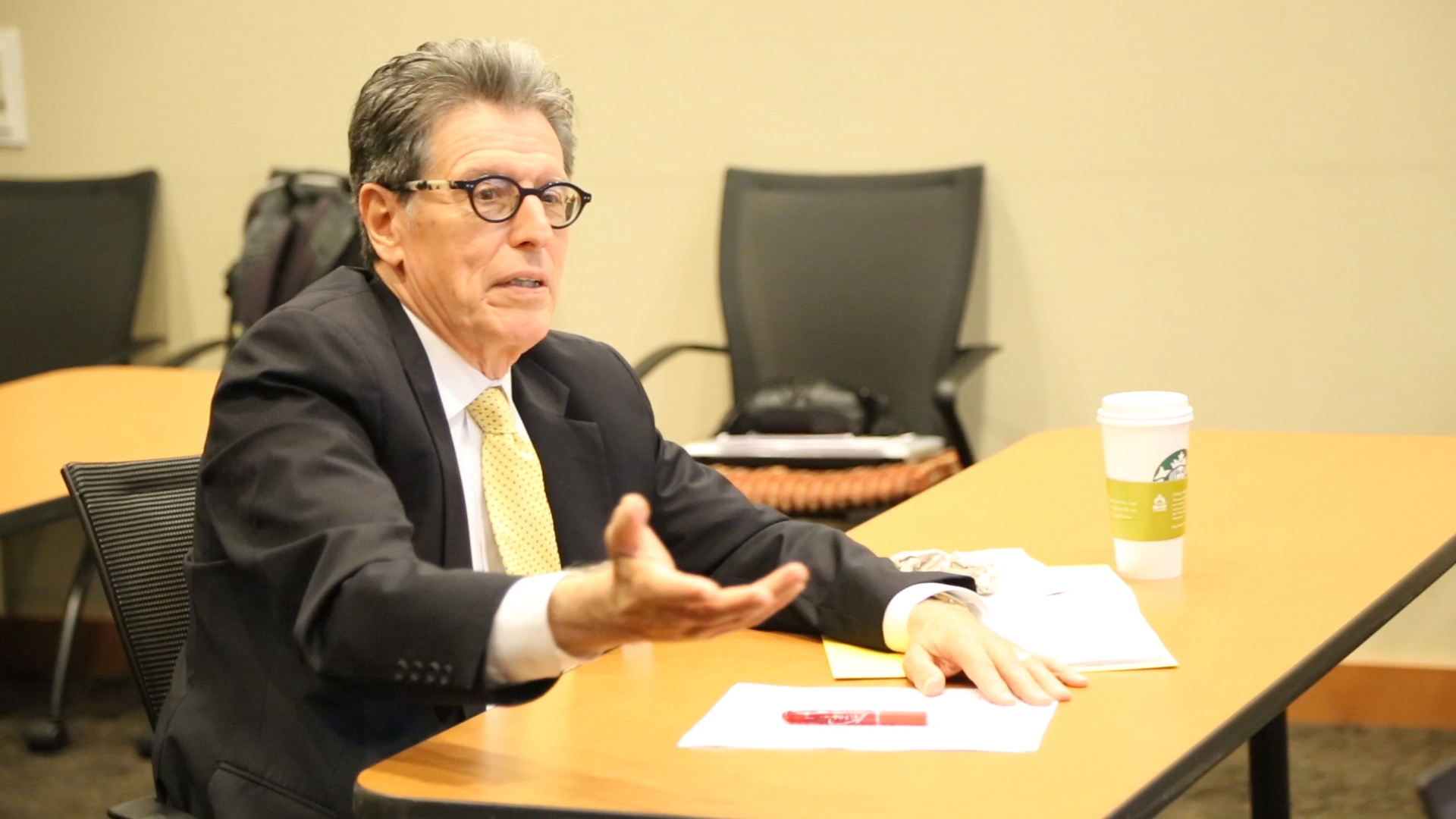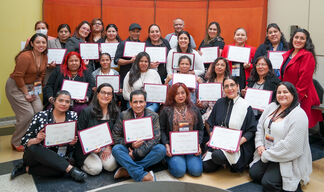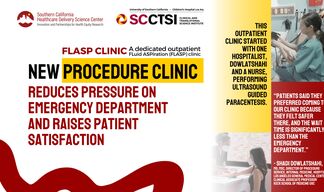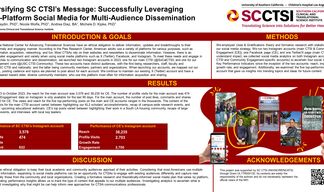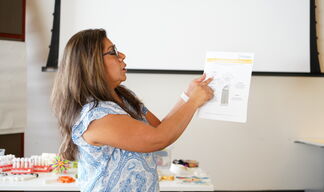Helping Researchers Conduct Clinical Research in Diverse Urban Populations
SC CTSI educators introduce early-career researchers to pitfalls and solutions.
The diversity of people and cultures in a major city like Los Angeles presents numerous challenges for investigators conducting clinical and translational research, but a considerable body of professional know-how can help investigators ensure that the science isn't lost in translation.
That was the message at a recent session of the short course, "Research in Diverse Urban Populations," offered periodically by the Southern California Clinical and Translational Science Institute (SC CTSI).
While people are largely similar biologically, explained lecturers, differences in culture, environment, lifestyles, ethnicity, as well as genetics can have a profound effect on outcomes of the interventions and investigations.
For Christopher J. Russell, MD, assistant professor in the Department of Pediatrics, Keck School of Medicine, learning about diversity has begun to improve his study of risk factors for pneumonia in children sent home with tracheostomy tubes, and who subsequently require significant care from parents.
"One of the things the course has taught me is how to engage families and develop models of shared decision-making," said Russell. "I've learned it's important to engage the families on their thoughts and beliefs before stating your own."
The course – open to USC faculty, health professionals, and students – is one element of SC CTSI's mission to deliver more of the benefits of clinical and translational science to underserved populations.
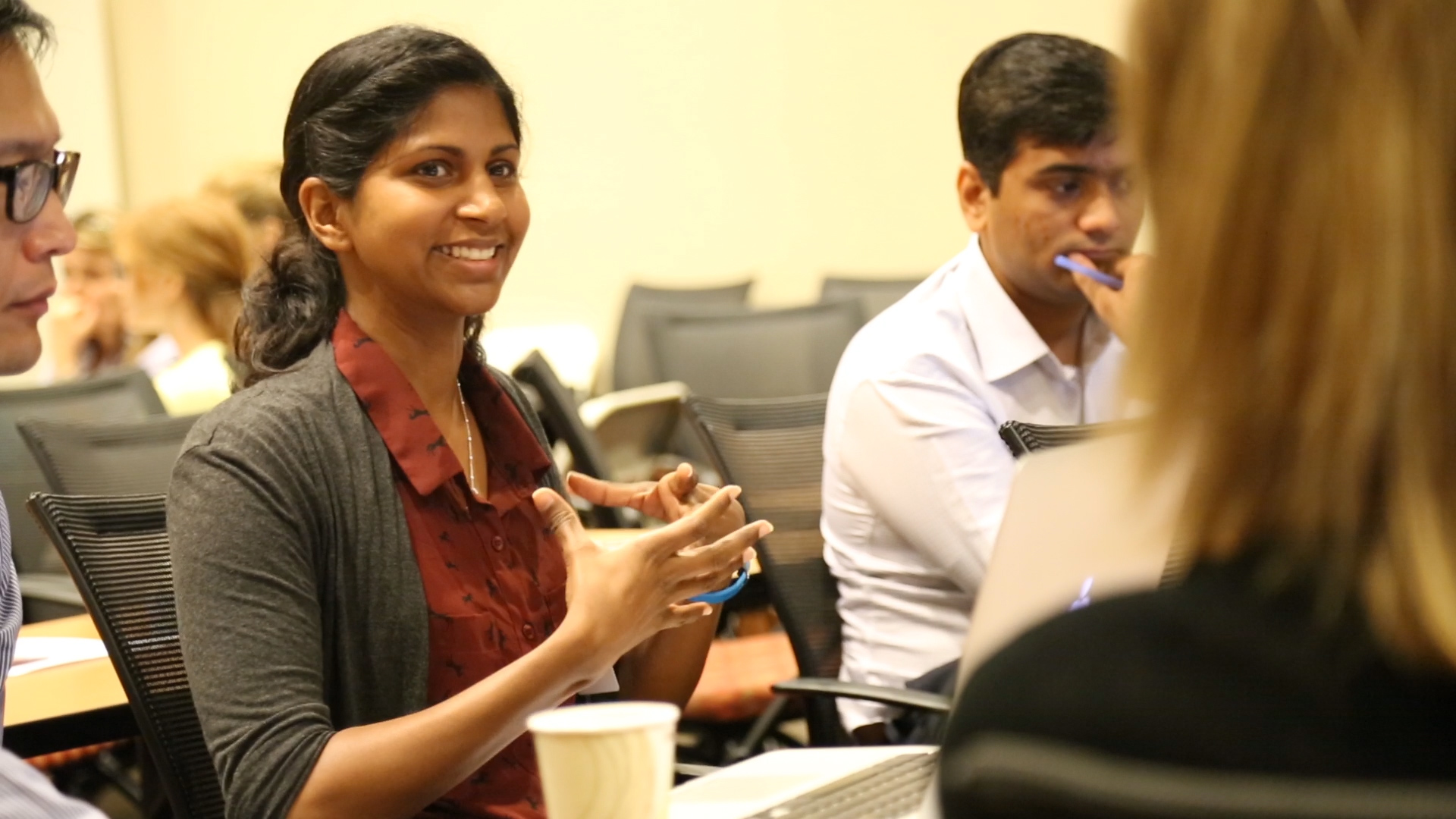
"It's critical for the SC CTSI to prepare our investigators and students for doing the best work possible in the populations we engage in our research," said Jonathan M. Samet, MD, MS, Director of Education, Career Development, and Ethics program (ECDE) for SC CTSI. "We're sensitizing them to a huge expanse of issues and problems and making available to them the foundation of the resources that they can learn from."
The ability to culturally tune communication and information is critical, said course participant Brenda Manzanarez, RD, nutrition research manager in the East Los Angeles Family Health Promotion Study, of UCLA-USC Center for Population Health and Health Disparities, USC Department of Medicine. She is studying ways to reduce heart disease among mostly immigrant Latinos by encouraging better nutrition via community-based workers called promotoras.
"We've had some challenges communicating about behavioral changes for individuals and families," said Manzanarez. "This course gives us an opportunity to think outside the box and develop different approaches."
The course helps researchers recognize the role of culture in clinical and translational investigation and frame their research in culturally appropriate ways.
For example, mental health researchers must adjust subjective measures such as "uncontrolled" behavior – used in diagnosis of bipolar disease – to the population under study.
"The notion of behavior, especially behavior considered deviant in some way, is highly variable in different cultures," said lecturer William Vega, PhD, provost professor, USC School of Social Work and Department of Preventive Medicine, Keck School of Medicine of USC. "That's the problem of imposing universal constructs of behavior on different ethnic and racial groups."
Other lecturers involved in the course include Katrina Kubicek, MA, assistant director of SC CTSI's Community Engagement program; Jennifer B. Unger, PhD, professor of preventive medicine, Keck School of Medicine of USC; and Lourdes Baezconde-Garbanati, PhD, associate professor of preventive medicine, Keck School of Medicine of USC.
To enroll in future sessions, visit the SC CTSI website.
